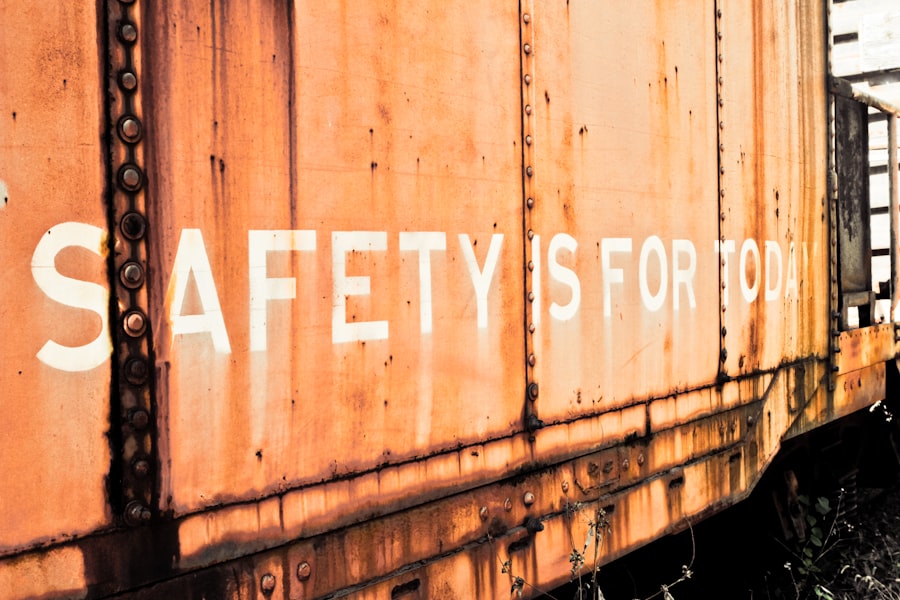Utility companies serve as the backbone of modern society, providing essential services such as electricity, water, and natural gas. These services are not merely conveniences; they are fundamental to the functioning of homes, businesses, and entire communities. The reliability of utility companies directly impacts the quality of life for millions of people, making their role critical in both urban and rural settings.
As society becomes increasingly dependent on these services, the expectations placed on utility companies grow correspondingly. Consumers expect not only consistent service but also a commitment to safety and environmental stewardship. However, the complexities of operating utility companies often lead to a tension between profitability and safety.
While the primary goal of any business is to generate profit, the unique nature of utility services necessitates a careful balance. The public relies on these companies to prioritize safety and reliability over financial gain. This article explores the multifaceted relationship between utility companies, safety, and profit, shedding light on the implications of prioritizing one over the other.
Key Takeaways
- Utility companies play a critical role in delivering essential services to the public.
- Prioritizing profit over safety in utility operations can lead to significant risks and harm to consumers.
- Regulatory oversight and legal consequences are vital to hold utility companies accountable for safety lapses.
- Employees and the public often advocate for stronger safety measures despite profit-driven pressures.
- Balancing profit and safety requires strategic changes and a shift in industry priorities toward ethical responsibility.
The Importance of Safety in Utility Operations
Safety is paramount in utility operations, as the potential consequences of negligence can be catastrophic. Utility companies manage infrastructure that, if compromised, can lead to severe accidents, environmental disasters, and loss of life. For instance, a gas leak can result in explosions, while faulty electrical systems can cause fires.
Therefore, it is essential for utility companies to implement rigorous safety protocols and maintain their infrastructure diligently. This commitment to safety not only protects consumers but also safeguards employees and the environment. Moreover, the importance of safety extends beyond immediate physical risks.
It encompasses the long-term sustainability of utility operations. A company that prioritizes safety is more likely to foster trust among its consumers and stakeholders. This trust can translate into customer loyalty and a positive public image, which are invaluable assets in a competitive market.
Thus, safety should not be viewed merely as a regulatory requirement but as a core value that underpins the operational ethos of utility companies.
Examples of Utility Companies Prioritizing Profit Over Safety

There have been numerous instances where utility companies have been accused of prioritizing profit over safety, often with dire consequences. One notable example is the case of Pacific Gas and Electric (PG&E) in California. The company faced scrutiny after its equipment was linked to several devastating wildfires, including the Camp Fire in 2018, which resulted in significant loss of life and property.
Investigations revealed that PG&E had neglected necessary maintenance and upgrades to its infrastructure in favor of cost-cutting measures. This tragic outcome highlighted how financial motivations can overshadow critical safety considerations. Another example can be found in the water supply sector, where some utility companies have faced criticism for failing to address contamination issues promptly.
The Flint water crisis serves as a stark reminder of what can happen when profit motives take precedence over public health. In this case, cost-saving measures led to the use of corrosive water that leached lead from aging pipes, exposing residents to toxic levels of lead. Such incidents underscore the urgent need for utility companies to reassess their priorities and recognize that neglecting safety can have far-reaching implications.
Impact of Prioritizing Profit Over Safety on Consumers
| Metric | Impact Description | Example Data | Source/Study |
|---|---|---|---|
| Consumer Injury Rate | Increase in injuries due to unsafe products | 25% rise in reported injuries after cost-cutting on safety features | Consumer Product Safety Commission (CPSC) |
| Product Recall Frequency | Number of recalls due to safety defects | 40% increase in recalls in industries prioritizing profit over safety | National Recall Database |
| Consumer Trust Index | Decline in consumer confidence in brand safety | 15-point drop in trust score post safety scandal | Edelman Trust Barometer |
| Legal Penalties | Fines and settlements paid due to safety violations | Average fines increased by 30% in companies with safety negligence | Department of Justice Reports |
| Customer Retention Rate | Decrease in repeat customers after safety issues | 20% drop in retention following product safety incidents | Market Research Surveys |
When utility companies prioritize profit over safety, consumers bear the brunt of the consequences. The immediate impact is often felt through service disruptions or accidents that can lead to injuries or fatalities. Beyond these acute risks, there are also long-term effects on public health and environmental quality.
For instance, when water quality is compromised due to inadequate maintenance or oversight, communities may face increased healthcare costs and diminished quality of life. Additionally, prioritizing profit can erode consumer trust in utility companies. When customers perceive that their safety is being compromised for financial gain, they may become more vocal in their dissatisfaction.
This discontent can manifest in public protests, calls for regulatory changes, or even legal action against the company. Ultimately, when consumers feel unsafe or undervalued, it can lead to a loss of business for utility companies and a tarnished reputation that may take years to rebuild.
Regulatory Oversight and Accountability for Utility Companies
Regulatory oversight plays a crucial role in ensuring that utility companies adhere to safety standards and prioritize consumer welfare. Government agencies are tasked with monitoring utility operations and enforcing compliance with safety regulations.
However, regulatory frameworks are not always robust enough to prevent lapses in safety practices. In some cases, regulatory bodies may lack the resources or authority to enforce compliance effectively. This gap can create an environment where utility companies feel emboldened to prioritize profit over safety without fear of significant repercussions.
Strengthening regulatory oversight and ensuring accountability is essential for fostering a culture of safety within the utility industry.
The Ethical Dilemma of Prioritizing Profit Over Safety

The ethical dilemma surrounding profit versus safety in utility operations raises profound questions about corporate responsibility. Utility companies operate within a framework that demands profitability; however, this should not come at the expense of public safety. The ethical implications are significant: when companies choose profit over safety, they risk endangering lives and damaging communities.
This dilemma is further complicated by the fact that many utility companies are monopolies or operate in limited competitive environments. In such cases, consumers may have little choice but to rely on these companies for essential services, creating an ethical obligation for these entities to prioritize consumer welfare above financial gain. The challenge lies in reconciling the need for profitability with the moral imperative to protect public health and safety.
Employee Perspectives on Safety and Profit Prioritization
Employees within utility companies often find themselves at the intersection of safety and profit prioritization. Many workers are deeply committed to ensuring safe operations and protecting their communities; however, they may face pressure from management to cut costs or overlook safety protocols in favor of financial performance. This internal conflict can create a challenging work environment where employees feel torn between their ethical responsibilities and corporate expectations.
Moreover, employees are often the first line of defense when it comes to identifying potential safety hazards. Their insights and experiences can provide valuable information for improving safety practices within the organization. However, if employees perceive that their concerns about safety are dismissed or undervalued in favor of profit motives, it can lead to decreased morale and increased turnover rates.
Fostering a culture that values employee input on safety issues is essential for creating a safer work environment and ensuring that profit does not overshadow critical safety considerations.
Public Outcry and Advocacy for Safety in Utility Operations
Public outcry plays a significant role in advocating for safety within utility operations. When incidents occur that highlight negligence or unsafe practices, communities often mobilize to demand accountability from utility companies. Grassroots movements and advocacy groups have emerged as powerful forces in pushing for regulatory changes and greater transparency within the industry.
These advocacy efforts can take many forms, from organized protests to social media campaigns aimed at raising awareness about safety issues. Public pressure can compel utility companies to reevaluate their practices and prioritize consumer safety more effectively. Additionally, when communities unite around a common cause, they amplify their voices and increase their chances of effecting meaningful change within the industry.
Legal Consequences for Utility Companies Putting Profit Over Safety
The legal consequences for utility companies that prioritize profit over safety can be severe. Regulatory agencies may impose fines or sanctions for violations of safety standards, while affected individuals or communities may pursue civil lawsuits seeking damages for negligence or harm caused by unsafe practices. High-profile cases have resulted in substantial financial penalties for companies found liable for prioritizing profit over consumer safety.
These legal repercussions serve as both a deterrent and a mechanism for accountability within the industry. They underscore the importance of adhering to safety regulations and highlight the potential consequences of neglecting consumer welfare in favor of financial gain.
Strategies for Balancing Profit and Safety in Utility Operations
Finding a balance between profit and safety is essential for sustainable utility operations. Companies must adopt strategies that prioritize both financial performance and consumer welfare simultaneously. One effective approach is investing in technology that enhances operational efficiency while improving safety measures.
For instance, predictive maintenance tools can help identify potential issues before they escalate into serious problems, reducing downtime and enhancing service reliability. Additionally, fostering a culture of safety within the organization is crucial for achieving this balance. Utility companies should encourage open communication about safety concerns among employees at all levels and provide training programs that emphasize the importance of safe practices.
By integrating safety into the core values of the organization, companies can create an environment where employees feel empowered to prioritize consumer welfare without compromising financial performance.
The Need for a Shift in Priorities in the Utility Industry
The relationship between utility companies’ profitability and consumer safety is complex and fraught with challenges. As society continues to rely on these essential services, it becomes increasingly important for utility companies to reassess their priorities. A shift towards placing greater emphasis on safety not only protects consumers but also fosters trust and loyalty within communities.
Ultimately, achieving this balance requires collaboration among stakeholders—including regulatory agencies, employees, advocacy groups, and consumers themselves—to create an environment where safety is prioritized alongside profitability. By embracing this shift in priorities, utility companies can ensure their long-term sustainability while fulfilling their ethical obligations to protect public health and welfare.
In recent discussions surrounding the balance between utility company profits and public safety, an insightful article highlights the ongoing debate about corporate responsibility. For a deeper understanding of how financial motivations can sometimes overshadow safety concerns, you can read more in this related article: Utility Company Profit Over Safety. This piece delves into the implications of prioritizing profit margins over the well-being of communities, shedding light on the critical need for regulatory oversight.
WATCH THIS! The Debt Trap: Why Private Equity Wants Your Power Company
FAQs
What does “utility company profit over safety” mean?
“Utility company profit over safety” refers to situations where utility companies prioritize financial gains and cost-cutting measures at the expense of maintaining or improving safety standards. This can lead to increased risks of accidents, service disruptions, or harm to the public and employees.
Why is safety important for utility companies?
Safety is crucial for utility companies because they manage essential services such as electricity, gas, and water. Ensuring safety protects customers, employees, and infrastructure from accidents, outages, and hazards. It also helps maintain public trust and regulatory compliance.
What are common safety concerns related to utility companies?
Common safety concerns include aging infrastructure, inadequate maintenance, insufficient safety protocols, failure to upgrade equipment, and ignoring warning signs of potential hazards. These issues can result in fires, explosions, power outages, or environmental damage.
How can prioritizing profit impact safety in utility companies?
When utility companies focus excessively on profit, they may reduce spending on maintenance, safety training, and infrastructure upgrades. This can increase the likelihood of accidents, equipment failures, and regulatory violations, ultimately endangering public safety.
Are utility companies regulated to ensure safety?
Yes, utility companies are subject to regulations by government agencies such as the Public Utility Commissions (PUCs) and federal bodies like the Occupational Safety and Health Administration (OSHA) and the Environmental Protection Agency (EPA). These agencies set safety standards and conduct inspections to enforce compliance.
What can consumers do if they suspect a utility company is neglecting safety?
Consumers can report safety concerns to their local utility regulatory agency or public utility commission. They can also contact consumer protection organizations or local government representatives to raise awareness and demand action.
Have there been notable incidents related to utility company safety failures?
Yes, there have been several high-profile incidents where utility companies’ neglect of safety led to disasters, such as wildfires caused by faulty power lines or gas explosions due to poor maintenance. These events often result in legal action, fines, and increased regulatory scrutiny.
How do utility companies balance profit and safety?
Responsible utility companies invest in safety measures, infrastructure upgrades, and employee training while managing costs efficiently. They aim to comply with regulations and maintain reliability to protect customers and their reputation, which ultimately supports sustainable profitability.
